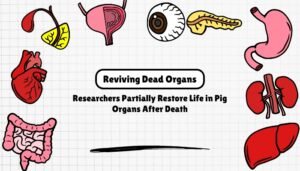Reviving Dead Organs: Researchers Partially Restore Life in Pig Organs After Death
Introduction The boundary between life and death has always been sharply defined in medicine: once the heart stops and circulation ceases, organs rapidly deteriorate. Within minutes, cells begin to die due to lack of oxygen and nutrients. This biological reality...
Read MoreThree-Parent Baby: First UK Infant Born Using DNA from 3 People to Prevent Disease
Introduction In a groundbreaking moment for reproductive medicine, the United Kingdom has witnessed the birth of its first baby conceived with DNA from three different people. This technique, commonly referred to as the “three-parent baby” method, represents a revolutionary approach...
Read MoreLow-Carb vs Low-Fat: Big Study Finds Which Diet Is Better for Weight Loss
Introduction For decades, the debate over the most effective diet for weight loss has been dominated by two popular approaches: low-carbohydrate and low-fat diets. Each side has passionate advocates. Low-carb supporters argue that reducing carbs lowers insulin levels and promotes...
Read MoreXanax Alternative? New Anxiety Drug Without Sedation in Trials
Background: Why alternatives to Xanax (alprazolam) are needed Xanax (alprazolam) is a benzodiazepine. It acts by enhancing GABA-A (gamma-aminobutyric acid) inhibitory neurotransmission, producing anxiolysis, sedation, muscle relaxation, and anticonvulsant effects. But the very properties that make benzodiazepines effective—rapid onset, central...
Read MoreGallbladder Cleanse – Benefits, How to do (VIDEO)
Gallbladder stones (Cholelithiasis) and inflammation (Cholecystitis) mostly (80%) do not cause any symptoms. The stones in gallbladder are generally asymptomatic and are found during investigating for other problems. In symptomatic cases, the most common symptom is pain in the abdomen....
Read MoreRed Blood Cell Indices
Most of us have seen blood check reports which show various values indicating changes in many health conditions. Though it is difficult for a non-medical person to understand their implications, most are able to compare the results with the normal...
Read MoreMaculopapular Rashes Causes (With Pictures)
Skin eruptions are very common symptom in various conditions. Every one of us has seen it almost daily in our lives. Doctors classify the rashes based on their types, texture, distribution, size, colour etc. Based on its appearance (morphology) there...
Read MoreNon-rebreather mask Vs Partial rebreather mask Vs Simple mask
Every one of us has seen an oxygen mask, either in real life scenarios or in movies. Some of us would have used it when being given oxygen in an emergency room or during surgery. We know it is used...
Read More




